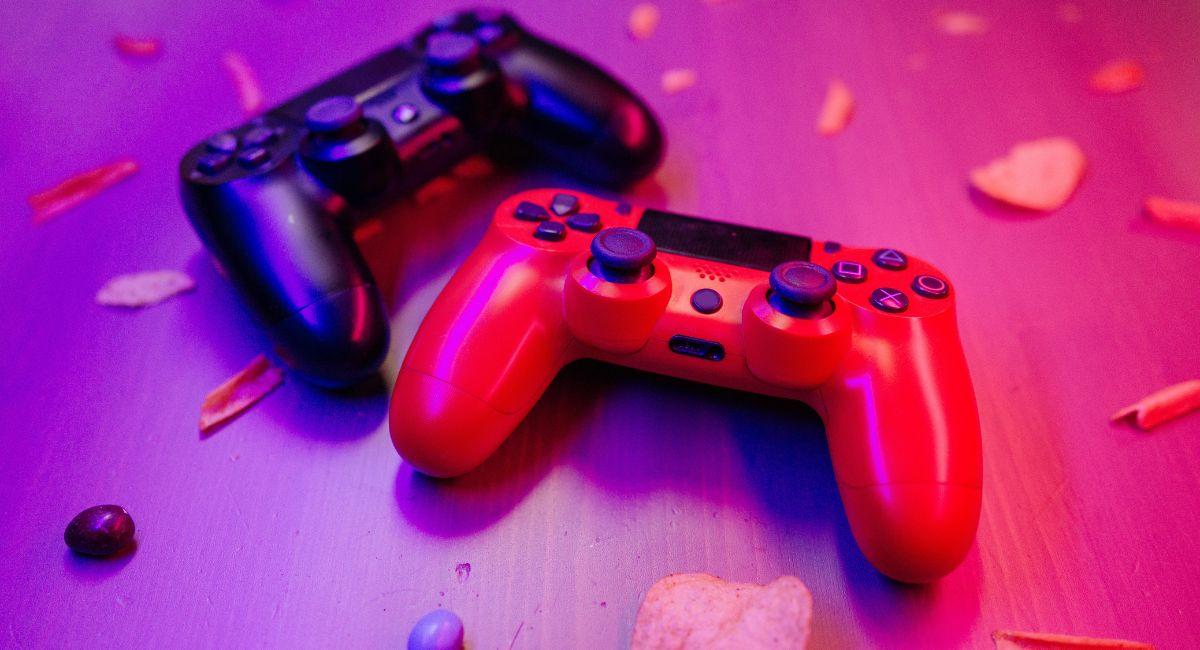January 2, 2024 by Diana Ambolis
830
The gaming landscape is undergoing a revolutionary transformation, and at the heart of this paradigm shift is blockchain technology. No longer confined to mere entertainment, gaming has evolved into a lucrative ecosystem where players can turn their passion into tangible profits. If you’re a gaming noob looking to embark on a journey into the exciting
The gaming landscape is undergoing a revolutionary transformation, and at the heart of this paradigm shift is blockchain technology. No longer confined to mere entertainment, gaming has evolved into a lucrative ecosystem where players can turn their passion into tangible profits. If you’re a gaming noob looking to embark on a journey into the exciting realm of blockchain gaming, you’ve stumbled upon a treasure trove of opportunities.
In this comprehensive guide, we’ll delve into the top 15 ways even a newcomer can navigate the intricacies of blockchain gaming to unlock a world of potential profits. From play-to-earn games and NFT trading to guild participation and game development, we’ll explore diverse strategies that can help you not only level up your gaming experience but also pad your wallet with crypto rewards. Buckle up as we embark on a thrilling adventure into the future of gaming where the boundaries between play and profit blur.
Top 15 Ways to Profit in Blockchain Gaming:

- Play-to-earn Games: Dive into play-to-earn blockchain games where your in-game activities translate into real-world rewards. Games like Axie Infinity and Decentraland offer players the chance to earn cryptocurrencies by participating in various activities within the game.
- NFT Trading: Get familiar with the world of non-fungible tokens (NFTs) and explore the marketplaces where you can buy, sell, and trade digital assets. Some blockchain games issue unique NFTs that can appreciate in value over time, providing a potential avenue for profit.
- Guild Participation: Join gaming guilds or communities within blockchain games. Some guilds offer shared rewards based on the collective achievements of their members, providing an additional source of income.
- Asset Flipping: Learn the art of buying and selling in-game assets. Acquire rare or desirable items within a game and sell them for a profit on the open market. This can be a lucrative strategy for those who understand the game’s economy.
- Staking and Yield Farming: Explore blockchain games that offer staking or yield farming opportunities. By locking your in-game assets or cryptocurrencies in certain protocols, you can earn passive income over time.
- Game Development: Even as a beginner, you can explore simple game development on blockchain platforms. Create and monetize your games, and if they gain popularity, you could earn rewards from player transactions.
- Participate in Token Sales: Keep an eye on upcoming blockchain game token sales or initial coin offerings (ICOs). Participating early in promising projects can lead to significant returns.
- Live Streaming and Content Creation: Share your gaming experiences through live streaming or content creation on platforms like Twitch or YouTube. Some blockchain games offer rewards to content creators, and you can also earn income through sponsorships and donations.
- Bug Bounty Programs: Participate in bug bounty programs offered by blockchain game developers. Reporting and helping fix bugs can earn you rewards in the form of cryptocurrencies or in-game assets.
- Gaming Tournaments: Participate in blockchain gaming tournaments. Some games organize competitive events with substantial prize pools, giving you the chance to showcase your skills and earn rewards.
- Educational Content: Share your knowledge about blockchain gaming through educational content. Blogs, tutorials, or video guides can attract a following, and you can monetize your content through ads or sponsorships.
- Cross-Game Trading: Explore opportunities for cross-game trading where assets from one game can be utilized or traded in another. This can open up diverse avenues for profit.
- Social Token Rewards: Some blockchain games issue social tokens to active community members. Engage with the community, and you might receive tokens that have real-world value.
- Governance Participation: Get involved in the governance of blockchain gaming platforms. Voting on proposals or contributing to the development of the ecosystem can lead to rewards.
- Marketplace Arbitrage: Monitor different marketplaces for price disparities. Buy low on one platform and sell high on another to capitalize on market inefficiencies.
How is blockchain used in gaming?
Blockchain technology has emerged as a transformative force in various industries, and the gaming sector is no exception. Its integration into gaming has given rise to new possibilities, creating a more transparent, secure, and player-centric environment. Let’s delve into the vast details of how blockchain is used in gaming:
1. Ownership of Digital Assets:
- NFTs (Non-Fungible Tokens): Blockchain enables the creation and use of NFTs, unique tokens that represent ownership of in-game assets. Players can truly own their digital items, ranging from characters and skins to virtual real estate, thanks to blockchain’s decentralized and transparent ledger.
2. Play-to-Earn Mechanism:
- Cryptocurrency Rewards: Blockchain facilitates play-to-earn gaming models, where players are rewarded with cryptocurrencies for their in-game activities. This turns gaming into a source of income, creating economic opportunities for players.
3. Decentralized Marketplaces:
- NFT Marketplaces: Decentralized marketplaces powered by blockchain allow players to buy, sell, and trade in-game assets directly, without the need for intermediaries. This fosters a player-driven economy and provides liquidity to virtual assets.
4. Preventing Fraud and Cheating:
- Immutable Transactions: The immutability of blockchain transactions helps in preventing fraud and cheating. Once recorded on the blockchain, transactions cannot be altered, ensuring the integrity of in-game purchases and rewards.
5. Smart Contracts:
- Automated Agreements: Smart contracts, self-executing contracts with the terms of the agreement directly written into code, automate various processes in gaming. This includes handling transactions, distributing rewards, and executing in-game events based on predefined conditions.
6. Cross-Game Compatibility:
- Interoperability: Blockchain allows for cross-game compatibility, enabling players to use their assets across different games and platforms. This interoperability enhances the overall gaming experience and opens up new possibilities for players.
7. Blockchain-Based Games:
- Entirely Decentralized Games: Some games are built entirely on blockchain platforms, providing a decentralized gaming experience. These games often utilize blockchain for everything from asset ownership to governance, creating a transparent and community-driven ecosystem.
8. Tokenization of Virtual Items:
- Tokenized Items: Virtual items are tokenized on the blockchain, giving them unique and provable scarcity. This scarcity can drive value and rarity in a way that was not possible in traditional gaming.
9. Community Governance:
- Decentralized Decision-Making: Some blockchain gaming platforms involve the community in decision-making processes through decentralized governance. Token holders may have voting rights on key decisions, ensuring a more democratic approach to the development and evolution of the game.
10. Securing Digital Identity:
- Secure User Authentication: Blockchain enhances security by providing a decentralized and secure way to manage user identities. This helps in preventing unauthorized access and protects players’ personal information.
11. Reducing Intermediaries:
- Direct Peer-to-Peer Transactions: Blockchain eliminates the need for intermediaries in transactions. Players can directly trade assets with each other, reducing fees and streamlining the exchange process.
12. Transparency and Audibility:
- Transparent Transactions: All transactions recorded on the blockchain are transparent and can be audited by anyone. This transparency builds trust among players, as they can verify the rarity and authenticity of in-game items.
13. Incentivizing Developers and Content Creators:
- Cryptocurrency Incentives: Blockchain enables game developers and content creators to be directly rewarded with cryptocurrencies for their contributions. This provides additional motivation and ensures a fair distribution of rewards.
14. Immutable Game History:
- Unalterable Game Records: Game records and achievements stored on the blockchain are immutable. This ensures that a player’s progress and achievements cannot be tampered with, adding credibility to in-game accomplishments.
15. Global Accessibility:
- Borderless Transactions: Blockchain enables global accessibility to in-game assets and currencies. Players from different parts of the world can participate without being hindered by regional restrictions, fostering a more inclusive gaming environment.
In summary, the integration of blockchain technology into gaming is reshaping the industry by providing players with true ownership, transparency, and new avenues for earning. The decentralized nature of blockchain fosters innovation, creating a gaming landscape where players are more empowered and engaged than ever before. As this technology continues to evolve, its impact on the gaming industry is likely to deepen, offering an exciting and transformative future for gamers worldwide.
Also, read – Everything You Need To Know About The Role Of Social Media In The World Of Blockchain Gaming
Is blockchain the future of gaming?
The incorporation of blockchain into the gaming industry has sparked significant interest and debate, with proponents arguing that it indeed represents the future of gaming. Let’s explore in vast detail the factors contributing to this assertion:
1. True Ownership of Digital Assets:
- NFTs and Tokenization: The introduction of NFTs (Non-Fungible Tokens) allows players to have true ownership of in-game assets. These digital assets, whether they are characters, items, or even virtual real estate, can be tokenized on the blockchain, ensuring authenticity, scarcity, and the ability for players to buy, sell, or trade them outside of the game environment.
2. Play-to-Earn Models:
- Cryptocurrency Rewards: Blockchain has enabled the play-to-earn model, where players can earn cryptocurrencies by participating in games. This paradigm shift transforms gaming from a leisure activity to a potential source of income, attracting a broader audience and revolutionizing the way players engage with games.
3. Decentralized Economies:
- Player-Driven Economies: Blockchain facilitates the creation of decentralized gaming economies. Instead of being controlled by game developers, these economies are driven by player interactions, with blockchain ensuring transparency and security in transactions. This player-centric approach can lead to more vibrant and sustainable gaming ecosystems.
4. Interoperability and Cross-Game Experiences:
- Cross-Game Asset Usage: Blockchain allows for interoperability, enabling players to use their assets across different games and platforms. This cross-game compatibility enhances the gaming experience, providing players with a seamless and interconnected virtual world.
5. Smart Contracts for Automated Transactions:
- Efficient Transactions: Smart contracts, automated self-executing contracts with predefined rules, streamline in-game transactions. Whether it’s distributing rewards, handling in-game events, or managing player-to-player transactions, smart contracts on the blockchain enhance efficiency and trust.
6. Community Governance:
- Decentralized Decision-Making: Some blockchain gaming platforms involve the community in decision-making through decentralized governance. Token holders may have voting rights on key decisions, creating a more democratic and inclusive development process.
7. Security and Fraud Prevention:
- Immutable Transactions: Blockchain’s immutability ensures that once a transaction is recorded, it cannot be altered. This feature enhances security, prevents fraud, and ensures the integrity of in-game purchases and rewards.
8. Reduced Intermediaries and Lower Transaction Costs:
- Direct Peer-to-Peer Transactions: Blockchain eliminates the need for intermediaries in transactions, allowing players to engage in direct peer-to-peer exchanges. This not only reduces fees but also simplifies the trading process, making it more accessible to a global audience.
9. Incentives for Developers and Content Creators:
- Cryptocurrency Rewards: Blockchain provides a direct way to incentivize game developers and content creators. By rewarding them with cryptocurrencies, it ensures a fair and transparent distribution of rewards, fostering creativity and innovation in the gaming industry.
10. Global Accessibility:
- Borderless Transactions: Blockchain enables global accessibility to in-game assets and currencies. Players from different parts of the world can participate without being hindered by regional restrictions, creating a more inclusive gaming environment.
11. Immutable Game History and Achievements:
- Credible Records: Game records and achievements stored on the blockchain are immutable. This ensures that a player’s progress and accomplishments are verifiable and cannot be tampered with, adding credibility to in-game achievements.
12. Evolving Business Models:
- New Revenue Streams: Blockchain introduces new revenue streams for game developers, such as the sale of in-game assets, participation in token sales, and the creation of decentralized applications (dApps) on blockchain platforms.
13. Enhanced User Engagement:
- Community Building: Blockchain fosters community building within games. The ability to participate in governance, decision-making, and the ownership of virtual assets strengthens the bond between players and the gaming ecosystem.
14. Technological Innovation:
- Continuous Advancements: As blockchain technology continues to evolve, so do its applications in gaming. Innovations such as layer 2 solutions, scalability improvements, and advancements in consensus mechanisms contribute to the ongoing growth and adoption of blockchain in gaming.
15. Resilience to Centralization and Monopolies:
- Decentralization: Blockchain introduces decentralization in gaming, reducing the dominance of centralized entities. This shift provides players with more autonomy and mitigates the risks associated with monopolies in the gaming industry.
While challenges and skeptics exist, the integration of blockchain technology in gaming has the potential to redefine the future of the industry. The decentralized, transparent, and player-centric features of blockchain align with the evolving preferences of gamers, making it a compelling force in shaping the next generation of gaming experiences. The future may see blockchain not only as a technological enhancement but as a fundamental pillar that revolutionizes the way we play, earn, and engage with virtual worlds.
Conclusion:
As we conclude our journey into the dynamic world of blockchain gaming, it’s evident that the future holds boundless opportunities for players of all levels. Whether you’re a seasoned gamer or a complete noob, the strategies explored in this guide offer a roadmap to navigate the exciting intersections of play and profit.
Remember, blockchain gaming isn’t just about accumulating wealth; it’s about participating in a vibrant community, pushing the boundaries of innovation, and embracing the decentralized future of entertainment. By incorporating these strategies into your gaming endeavors, you’re not just playing; you’re investing in a future where gaming is not just a pastime but a pathway to financial empowerment.
So, gear up, level up, and embark on your blockchain gaming journey with confidence. The future of gaming is here, and you’re at the forefront of a revolution that merges passion with profit.
































































